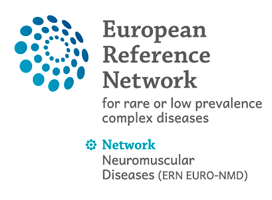20 Aug 2019
Patient and caregiver perspectives on guideline adherence: the case of endocrine and bone health recommendations for Duchenne muscular dystrophy
Authors:
Denger B, Kinnett K, Martin A, Grant S, Armstrong C, Khodyakov D
Abstract
Background:
Clinical care guidelines are typically developed by clinicians and researchers. Including patient and caregiver voices in guideline development may help create guidelines that are more useful for patients and consequently improve their guideline adherence. Although there is substantial research on the factors the affect providers’ adherence to guidelines, there is less research on the factors that affect patients’ compliance with guideline recommendations, especially among those with rare disorders. The purpose of this study is to explore factors that are likely to affect patient/caregiver adherence to endocrine and bone health recommendations for Duchenne Muscular Dystrophy (DMD). To do so, we used qualitative data collected as part of the study designed to develop, implement, and evaluate a new online, modified-Delphi approach to engaging patients with rare diseases and their caregivers in guideline development, using care guidelines for DMD as a case study.
Methods:
We thematically analyzed qualitative data collected from 95 adults with DMD and their caregivers who participated in at least one round of our online Modified-Delphi panel process. Participants rated and commented on the patient-centeredness of 19 recommendations about vertical growth, weight management, bone health, and delayed puberty included in the 2018 DMD care considerations. Patient-centeredness was operationalized as the importance and acceptability of care recommendations.
Results:
Thematic analyses revealed six factors that affect guideline adherence from the patient/caregiver perspective: content and format of recommendations, patient and provider characteristics, and social and financial factors.
Conclusions:
This study used a novel approach to exploring patient and caregiver perspectives on factors that may affect guideline adherence. The six factors identified by DMD patients and caregivers are similar to the factors affecting provider adherence and are not limited to DMD. Understanding consistency between provider- and patient/caregiver-identified barriers to following guideline recommendations can lead to developing more successful interventions for increasing guideline adherence.

